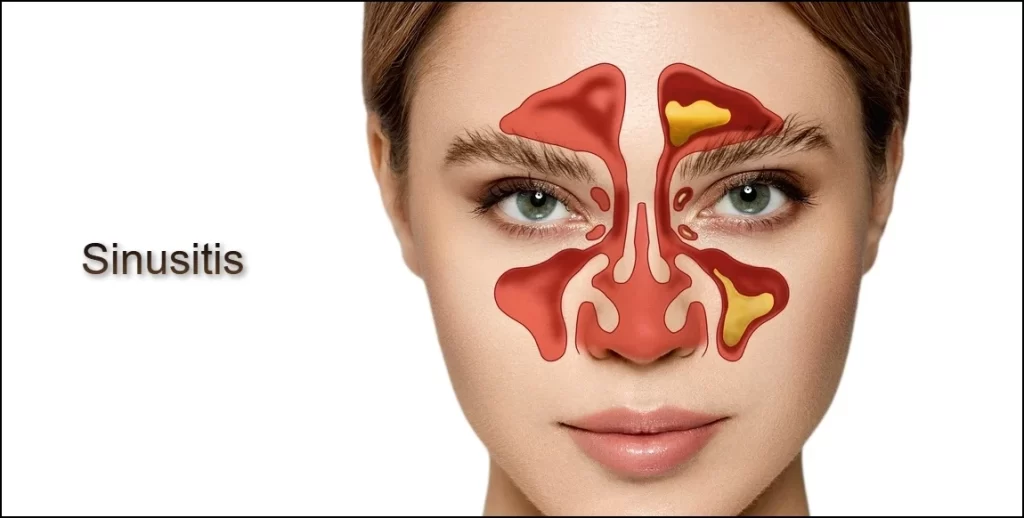Sinusitis is a prevalent condition characterized by inflammation of the sinus cavities, which can lead to a host of uncomfortable symptoms. Understanding sinusitis and its treatment options can empower patients to seek appropriate care and improve their quality of life. This article provides an in-depth look at sinusitis, its causes, symptoms, diagnosis, and various treatment methods available through expert ENT care.
What is Sinusitis?
Sinusitis, commonly called a sinus infection, occurs when the tissue lining the sinuses becomes inflamed or swollen. This can block mucus drainage, leading to fluid buildup and potential infection. Sinusitis can be classified into three categories:
- Acute Sinusitis: Symptoms last less than four weeks and often follow a cold or upper respiratory infection.
- Subacute Sinusitis: Symptoms last between four to twelve weeks.
- Chronic Sinusitis: Symptoms persist for twelve weeks or longer and may recur several times yearly.
- Recurrent Acute Sinusitis: Several episodes occur within a year, each lasting less than four weeks.
Common Causes of Sinusitis
Several factors can contribute to the development of sinusitis, including sinus symptoms:
- Viral Infections: Most cases of acute sinusitis begin with a viral infection, such as the common cold.
- Bacterial Infections: Secondary bacterial infections may occur significantly if symptoms worsen after a cold.
- Allergies: Allergic reactions to pollen, dust mites, or pet dander can lead to inflammation and swelling in the nasal passages.
- Nasal Polyps: Non-cancerous growths in the nasal cavity can block sinus drainage, leading to infections.
- Deviated Septum: A crooked nasal septum can obstruct sinus drainage.
- Environmental Irritants: Pollution, smoke, and strong odors can irritate the sinus linings.
Recognizing the Symptoms
Sinusitis symptoms can vary in intensity and duration. Common symptoms include:
- Nasal Congestion: Difficulty breathing through the nose due to swollen nasal passages.
- Facial Pain or Pressure: Discomfort in the forehead, cheeks, or around the eyes, often worsening when bending forward.
- Thick Nasal Discharge: Yellow or green mucus discharge from the nose, indicating infection.
- Reduced Sense of Smell and Taste: Inflammation can impair olfactory function.
- Cough: A persistent cough can be due to postnasal drip, especially at night.
- Fever: Low-grade fever may accompany sinusitis, especially if an infection causes it.
- Fatigue: General tiredness due to the body fighting off an infection.
When to Consult an ENT Specialist
It’s essential to consult an ENT specialist when:
- Symptoms last longer than 10 days without improvement.
- Symptoms initially improve but then worsen (a possible sign of a secondary infection).
- You experience severe symptoms, including high fever, vision changes, or severe headache.
- You have frequent sinus infections, which may indicate an underlying issue requiring treatment.
Expert ENT Care for Sinusitis
An ENT specialist is equipped to provide comprehensive care for sinusitis. The diagnostic process typically includes:
- Medical History and Symptoms Review: Discuss your symptoms, their duration, and any previous episodes of sinusitis.
- Physical Examination: A thorough examination of the nasal passages and throat, often using a nasal endoscope to visualize the sinuses directly.
- Imaging Studies: CT scans may be ordered to assess the sinuses’ condition, identify blockages, or check for structural issues.
Treatment Options
Once diagnosed, treatment plans for sinusitis can include:
- Medications:
- Antibiotics: If a bacterial infection is suspected, antibiotics may be prescribed. It’s crucial to complete the entire course, even if symptoms improve.
- Nasal Corticosteroids: These sprays reduce inflammation in the nasal passages, helping to relieve symptoms.
- Decongestants: Oral or nasal decongestants can help reduce swelling and relieve congestion.
- Antihistamines: If allergies contribute to sinusitis, antihistamines can help alleviate symptoms.
- Nasal Irrigation:
- Saline Rinses: A saline solution can help flush mucus and allergens from the nasal passages, providing symptom relief.
- Allergy Testing and Management:
- If allergies are identified as a trigger, the ENT may recommend allergy testing and a management plan, including allergy shots or medication.
- Surgery:
- Functional Endoscopic Sinus Surgery (FESS): In cases of chronic or recurrent sinusitis that do not respond to medical treatment, this minimally invasive surgery can open blocked sinuses, remove obstructions, and improve drainage.
- Balloon Sinuplasty: A less invasive procedure that uses a small balloon to expand the sinus openings and improve drainage.
Preventive Measures
Taking proactive steps can help reduce the risk of sinusitis:
- Stay Hydrated: Drinking plenty of water helps thin mucus, facilitating drainage.
- Manage Allergies: Work with your ENT specialist to identify and manage allergies effectively.
- Avoid Irritants: Limit exposure to environmental irritants, such as smoke, strong perfumes, or pollutants.
- Practice Good Hygiene: Regular handwashing and avoiding close contact with sick individuals can help prevent infections.
Conclusion
If you’re struggling with the discomfort of sinusitis, seeking expert ENT care is crucial. An experienced sinus specialist can provide a tailored treatment plan that addresses the underlying causes and helps alleviate your symptoms. Don’t let sinusitis disrupt your life—trust the expertise of professionals who prioritize your health and well-being.
Visit ENT Care Center for more information or to schedule a consultation. Your journey to better sinus health starts here!

